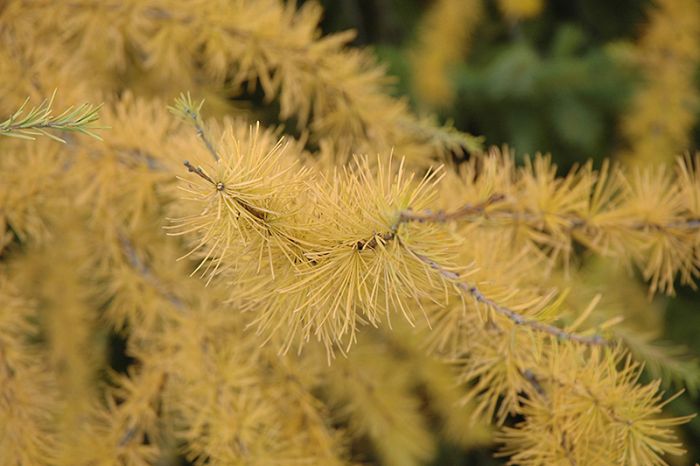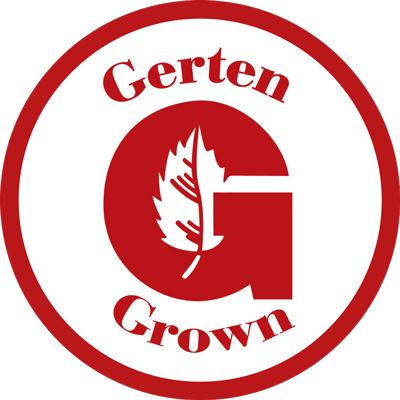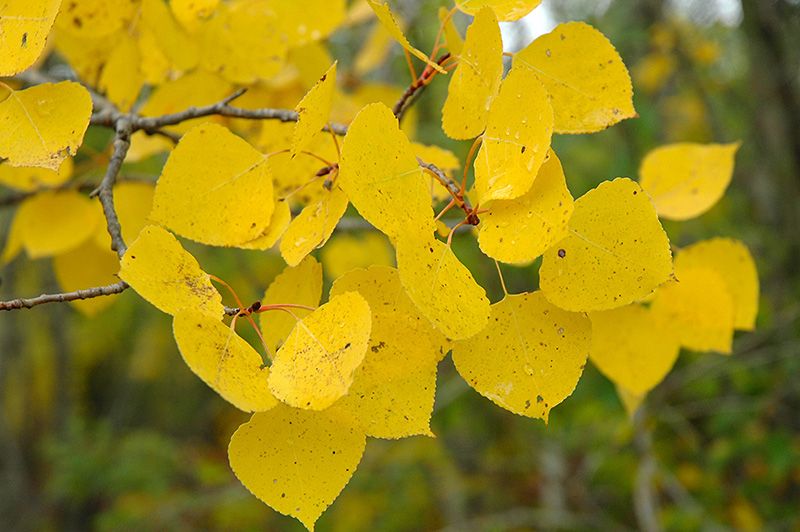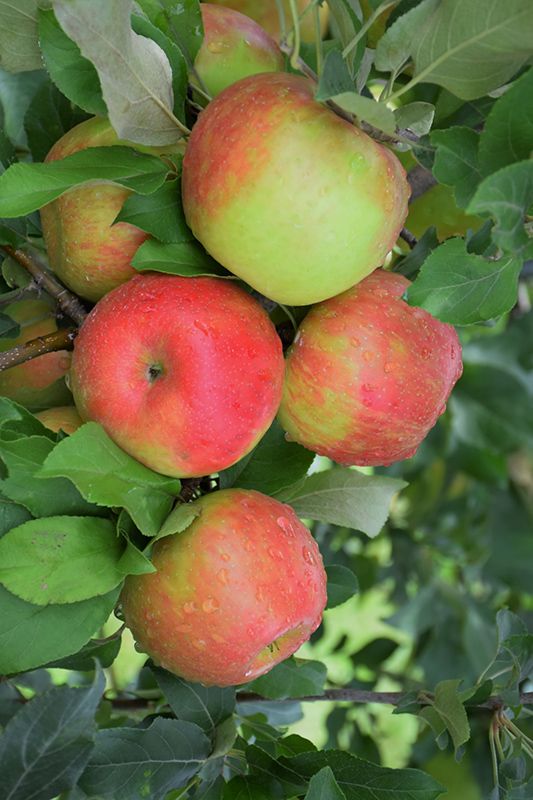Larix, Eastern Larch 'Tamarack'





- Sun Preference
- Full-Sun, Part-Sun
Description
Beautiful deciduous conifer with bright green foliage turning bright yellow in fall. It has horizontal branches, soft needles, and bark with large plates.
Minnesota's Largest Selection of Trees
At Minnesota's Destination Garden Center, we offer a diverse range of trees to suit any landscaping need. Whether you're looking for shade trees to cool your home or ornamental trees to add beauty and interest, you'll find the perfect tree at Gertens. Our knowledgeable staff can help you select the right tree for your space and provide tips for care and maintenance. Visit Gertens today and explore the unmatched variety of trees to enhance your outdoor environment!
Details
Height: 75 feet
Spread: 25 feet
Sunlight: ![]()
![]()
Hardiness Zone: 2a
Other Names: American Larch, Tamarack
Description:
A tall spire-like coniferous tree with deciduous needles starting bright green in spring and turning brilliant gold in fall; prefers extremely moist locations and sandy soils; can look a little odd in winter without needles, but shines the other 3 seasons
Ornamental Features
Eastern Larch has bluish-green foliage which emerges light green in spring. The needles turn an outstanding gold in the fall. Neither the flowers nor the fruit are ornamentally significant. The rough gray bark and gold branches add an interesting dimension to the landscape.
Landscape Attributes
Eastern Larch is an open evergreen tree with a strong central leader and a distinctive and refined pyramidal form. It lends an extremely fine and delicate texture to the landscape composition which can make it a great accent feature on this basis alone.
This tree will require occasional maintenance and upkeep, and usually looks its best without pruning, although it will tolerate pruning. Deer don't particularly care for this plant and will usually leave it alone in favor of tastier treats. It has no significant negative characteristics.
Eastern Larch is recommended for the following landscape applications;
- Accent
- Shade
- Vertical Accent
Planting & Growing
Eastern Larch will grow to be about 75 feet tall at maturity, with a spread of 25 feet. It has a low canopy with a typical clearance of 1 foot from the ground, and should not be planted underneath power lines. It grows at a slow rate, and under ideal conditions can be expected to live for 60 years or more.
This tree does best in full sun to partial shade. It is quite adaptable, prefering to grow in average to wet conditions, and will even tolerate some standing water. It is not particular as to soil type, but has a definite preference for acidic soils. It is somewhat tolerant of urban pollution. This species is native to parts of North America.
| SKU | Container Size |
| E1062AP | #3 Container (3 Gallon) |
| E1070 | #10 Container (10 Gallon) |
* Not all container sizes may be available at this time. See store for details on specific container size availability.
Eastern Larch | Larix laricina
Height: 75 feet
Spread: 25 feet
Sunlight: full sun to partial shade
Hardiness Zone: 2a
Other Names: American Larch, Tamarack
Brand: Gertens
Description:
A tall spire-like coniferous tree with deciduous needles starting bright green in spring and turning brilliant gold in fall; prefers extremely moist locations and sandy soils; can look a little odd in winter without needles, but shines the other 3 seasons
Ornamental Features
Eastern Larch is primarily valued in the landscape for its distinctively pyramidal habit of growth. It has bluish-green evergreen foliage which emerges light green in spring. The needles turn an outstanding gold in the fall, which persists throughout the winter. The rough gray bark and gold branches add an interesting dimension to the landscape.
Landscape Attributes
Eastern Larch is an open evergreen tree with a strong central leader and a distinctive and refined pyramidal form. It lends an extremely fine and delicate texture to the landscape composition which can make it a great accent feature on this basis alone.
This tree will require occasional maintenance and upkeep, and usually looks its best without pruning, although it will tolerate pruning. Deer don't particularly care for this plant and will usually leave it alone in favor of tastier treats. It has no significant negative characteristics.
Eastern Larch is recommended for the following landscape applications;
- Accent
- Shade
- Vertical Accent
- Planting & Growing
Eastern Larch will grow to be about 75 feet tall at maturity, with a spread of 25 feet. It has a low canopy with a typical clearance of 1 foot from the ground, and should not be planted underneath power lines. It grows at a slow rate, and under ideal conditions can be expected to live for 60 years or more.
This tree does best in full sun to partial shade. It is quite adaptable, prefering to grow in average to wet conditions, and will even tolerate some standing water. It is not particular as to soil type, but has a definite preference for acidic soils. It is somewhat tolerant of urban pollution. This species is native to parts of North America.
More Information
| Gerten Grown Plants | Gerten Grown Plants |
|---|---|
| MN Native Plants | MN Native Plants |
| Available for Pre-Order | Yes |
| Tree Type | Evergreen |
| Sun Preference | Full-Sun, Part-Sun |
| Mature Height (Range) | 50+ feet |
| USDA Hardiness Zone | 2, 3, 4, 5, 6, 7 |
| Common Family Name | Larch |






